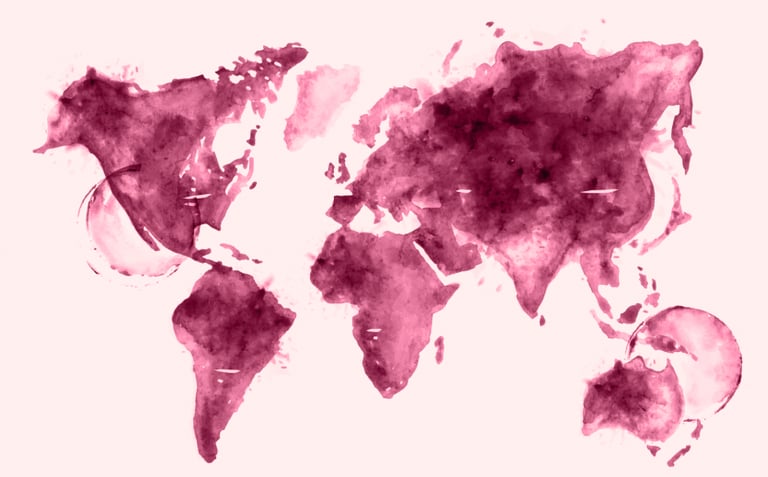
Subscribe to our newsletter
The Evolving Landscape of Wine Laws and Regulations
Implications for Fine Wine Investors
10/26/20233 min read


The world of fine wine investment is not only influenced by economic factors and market trends but also deeply impacted by ever-evolving wine laws and regulations. These legal frameworks, established by governments and industry organizations worldwide, play a crucial role in shaping the fine wine investment market. As an investor, understanding the implications of these changes is essential for making informed decisions and navigating the complex landscape of fine wine investments.
The Global Nature of Wine Laws and Regulations
Wine laws and regulations vary significantly from country to country, and even within regions of the same country. The intricacies of these legal frameworks can encompass a wide range of aspects, including production, labeling, distribution, taxation, import, and export. Additionally, wine laws are continually evolving, reflecting changes in consumer preferences, environmental concerns, and geopolitical developments.
Navigating the Complexity of Wine Labeling Laws
One of the most critical aspects for fine wine investors is understanding wine labeling laws. Regulations related to wine labeling often dictate the information that must be displayed on wine bottles, such as the origin, vintage, grape variety, and alcohol content. These laws are designed to protect consumers from fraud and ensure transparency in the wine market.
However, navigating the complexity of labeling laws can be challenging, especially for investors dealing with wines from multiple regions. Compliance with labeling requirements is essential for ensuring the authenticity and provenance of wines, as well as for establishing their market value. Investors must stay up-to-date with the latest changes in labeling regulations to avoid potential legal pitfalls and protect their investments.
The Impact of Environmental Regulations
As environmental concerns gain prominence worldwide, wine laws and regulations are also shifting to address sustainability and environmental protection. Many wine-producing regions are implementing regulations aimed at reducing carbon emissions, conserving water resources, and promoting organic and biodynamic practices.
For fine wine investors, this means considering the environmental sustainability of the vineyards and wineries in their portfolio. Wines produced using eco-friendly practices may hold greater appeal to environmentally-conscious consumers, potentially leading to increased demand and higher prices. Conversely, non-compliance with environmental regulations could result in reputational damage and legal consequences for wine producers and investors alike.
Tariffs and Trade Policies
In recent years, geopolitical developments and trade disputes have led to the imposition of tariffs on wine imports and exports. These tariffs can significantly impact the fine wine investment market, affecting both pricing and market access.
For example, tariffs on wine imports can make certain wines more expensive for consumers in the importing country, potentially leading to reduced demand. Conversely, tariffs on wine exports can limit access to international markets for wine producers, affecting their profitability and, in turn, the value of investors' portfolios.
Regulations on Direct-to-Consumer Sales
The rise of e-commerce and direct-to-consumer sales channels has challenged traditional wine distribution models. Some regions have implemented regulations that restrict or govern direct sales to consumers, impacting wine producers' ability to reach buyers directly.
For investors, understanding these regulations is crucial, as direct-to-consumer sales can influence the pricing and availability of certain wines. Additionally, changes in direct sales regulations can present new opportunities for investors to capitalize on emerging distribution channels.
The Role of Wine Industry Associations
Wine industry associations play a significant role in shaping wine laws and regulations. These organizations represent the interests of wine producers and advocate for policies that support the industry's growth and competitiveness.
As a fine wine investor, being aware of the initiatives and positions of these industry associations can provide valuable insights into the potential impact of upcoming changes in wine laws. Participating in industry events and engaging with these associations can also help investors stay informed and network with key stakeholders in the wine industry.
Conclusion
The ever-evolving landscape of wine laws and regulations presents both challenges and opportunities for fine wine investors. As governments and industry organizations around the world continue to adapt their legal frameworks, investors must remain vigilant and informed about these changes. By understanding the implications of evolving wine laws, investors can make informed decisions, mitigate risks, and position themselves for success in the dynamic and exciting world of fine wine investments.
🍷 Stay informed with WineLux! Subscribe to our newsletter for expert insights on fine wine investments and the latest trends in the wine market. 📩🍇
